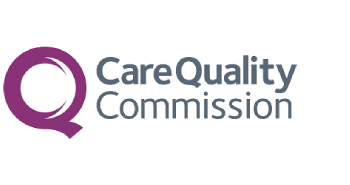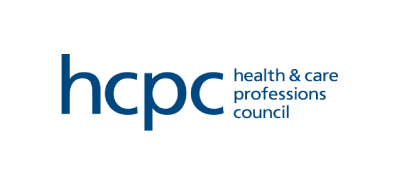Early diagnosis of Attention Deficit Hyperactivity Disorder (ADHD) and Autism Spectrum Disorder (ASD) can be life-changing for children and their families. If you’re a parent concerned about your child’s development, it’s natural to feel overwhelmed and unsure of the next steps. You might notice your child struggling with communication, behaviour, or attention and wonder if these difficulties are just a phase or something more significant.
This article will explore the benefits of early diagnosis for both ADHD and ASD, providing clarity on why early intervention matters and how it can impact your child’s development. We’ll also guide you through the process of getting an assessment, highlighting the services offered by KPI:Access, which can help your child get the support they need. Finally, we’ll answer some frequently asked questions to ensure you have all the information you need to make informed decisions about your child’s health.
What is ADHD and ASD?
Before expanding into the importance of early diagnosis, it’s important to understand ADHD and ASD, as they are often misunderstood or misdiagnosed.
ADHD
ADHD is a neurodevelopmental disorder that affects a person’s ability to concentrate, manage impulses, and stay focused. Symptoms typically appear before the age of 12, and they often include:
- Inattentiveness (easily distracted, forgetful)
- Hyperactivity (excessive movement or fidgeting)
- Impulsivity (acting without thinking)
These symptoms can vary from child to child, which is why professional diagnosis is essential.
ASD
ASD is a spectrum of neurodevelopmental conditions that affect social communication and behaviour. Children with ASD may struggle with interpreting social cues, managing their emotions, and engaging in play or conversations. They may also exhibit repetitive behaviours or have highly specific interests. Since ASD exists on a spectrum, the range and severity of symptoms differ significantly between individuals.
Both conditions can impact a child’s ability to succeed academically and socially. However, with early diagnosis and support, children with ADHD and ASD can lead fulfilling lives.
Co-Occurring Conditions
It’s essential to recognise that ADHD and ASD are often accompanied by other co-occurring conditions, which can complicate a child’s developmental progress. These conditions might include anxiety, depression, learning disabilities, sensory processing disorders, or speech and language delays. Identifying these additional challenges early on through an assessment can ensure that your child receives specific interventions that address all of their needs.
For example, children with ADHD may also experience emotional dysregulation or oppositional defiant disorder (ODD), while children with ASD might have heightened sensory sensitivities or sleep disturbances. Early diagnosis can provide insight into these overlapping conditions, enabling professionals to create a more holistic intervention plan. Understanding the full scope of your child’s developmental profile is crucial for helping them thrive academically, socially, and emotionally.
Why Early Diagnosis Matters
Identifying ADHD and ASD as early as possible can dramatically improve the quality of life for both the child and the family. Here’s why early diagnosis of ADHD and ASD is crucial:
1. Early Intervention Improves Outcomes
Research consistently shows that early intervention leads to better long-term outcomes for children with ADHD and ASD. Early diagnosis allows for targeted therapy and support that can help children develop essential skills to manage their symptoms.
For instance, children diagnosed with ADHD can benefit from behavioural therapy, medication, or a combination of both, tailored to their needs. This helps them perform better at school and at home. Similarly, early identification of ASD allows for the implementation of strategies to support social skills development, speech therapy, and interventions that can reduce challenging behaviours.
2. Access to Specialised Education and Support
Children with ADHD or ASD may struggle in traditional classroom settings. An early diagnosis ensures that they are provided with appropriate educational resources. Schools can implement Individual Education Plans (IEPs) or provide access to special educational needs (SEN) support. These measures are vital for helping children thrive in their learning environments.
3. Reduces Stress for Parents and Families
A child’s undiagnosed ADHD or ASD can often be a source of stress and confusion for families. Without understanding why a child exhibits certain behaviours, parents may feel at a loss for how to help. Early diagnosis can provide clarity and relief by offering a roadmap for managing behaviours and ensuring that the child receives the appropriate care.
4. Helps Build the Child’s Confidence
Children with undiagnosed ADHD or ASD often experience frustration and low self-esteem due to their struggles with everyday tasks. With a diagnosis, children can begin to understand their challenges and strengths. This knowledge, coupled with appropriate support, can boost their confidence, helping them to overcome obstacles and develop a more positive self-image.
5. Prevents Misdiagnosis and Misunderstanding
Without a proper diagnosis, children with ADHD or ASD may be labelled as lazy, disruptive, or difficult. Misunderstanding their behaviours can lead to punitive approaches in school or at home, which can exacerbate their difficulties. An early diagnosis ensures that their behaviours are seen through the lens of their condition, fostering a more empathetic and supportive environment.
Signs That Your Child May Have ADHD or ASD
Many parents wonder whether their child’s behaviour is just part of normal development or if it’s something that requires further investigation. Here are some common signs of ADHD and ASD:
Signs of ADHD:
- Difficulty staying focused, especially in tasks they find boring or challenging
- Constant fidgeting or moving
- Acting without thinking
- Difficulty following instructions
- Trouble waiting their turn or sharing
Signs of ASD:
- Delayed speech or lack of communication skills
- Limited interest in social interaction or play with peers
- Repetitive behaviours or strict routines
- Intense focus on specific interests
- Difficulty understanding social cues, like facial expressions or tone of voice
If you recognise any of these signs in your child, it might be worth considering an assessment for ADHD or ASD.
Gender Differences in Diagnosis
Gender differences in the presentation of ADHD and ASD can lead to underdiagnosis, particularly in girls. While ADHD in boys is often characterised by hyperactive and impulsive behaviours, girls may exhibit more subtle signs like inattentiveness, daydreaming, or internalised emotions such as anxiety. This can result in ADHD being overlooked in girls, as their symptoms may be less disruptive in school or social environments.
Similarly, ASD may present differently in girls, who are often better at masking their symptoms. Girls with ASD might develop coping mechanisms to blend in with peers, making their social communication challenges less obvious. They may also focus on more socially acceptable, but intense, interests, further masking the condition. Because of these gender differences, it’s crucial for parents and professionals to look beyond traditional diagnostic criteria and understand how ADHD and ASD can manifest uniquely in girls.
By considering these gender-specific factors, an early diagnosis can be more accurate and comprehensive, ensuring that girls receive the support they need just as promptly as boys.
The Assessment Process at KPI:Access
At KPI:Access, we specialise in assessing and diagnosing ADHD and ASD in children. We believe that every child deserves the opportunity to reach their full potential, and we work with families to provide fast, reliable assessments.
What Happens in an ADHD/ASD Assessment?
During an assessment, our neurodevelopmental specialists will work closely with you and your child. Our team’s expertise in neurodevelopmental disorders ensures that every child is thoroughly evaluated, and that any challenges are identified early.
The process typically involves:
- Initial Consultation: This includes discussing your child’s medical history and any specific concerns you may have about their behaviour or development.
- Behavioural Observation: A specialist will observe your child in different settings to understand how they interact and respond to various stimuli.
- Diagnostic Tools: We use a range of standardised tools and assessments to evaluate attention, social communication, and developmental milestones.
- Feedback and Next Steps: Once the assessment is complete, a specialist will provide feedback, discuss the diagnosis (if applicable), and recommend appropriate interventions.
One of the key benefits of choosing KPI:Access is that you can be seen quickly—often within a few days—without the need for a GP referral.
Role of Parents and Caregivers in the Process
As Parents and caregivers, you will play a key role in the early diagnosis of ADHD and ASD. As the first to notice developmental delays or behavioural differences, parents are often the driving force behind seeking an assessment. Early diagnosis is not only beneficial for the child, but can also help parents by providing a clearer understanding of their child’s needs.
Throughout the assessment process, parents can actively participate by documenting their child’s behaviour, noting patterns, and communicating any concerns with healthcare professionals. Being proactive about tracking developmental milestones and working closely with professionals ensures that nothing is overlooked during the diagnosis.
Post-diagnosis, the role of parents and caregivers becomes even more important. You can help implement therapy plans, manage the home environment, and coordinate with schools to ensure appropriate support systems are in place. Also, parents can advocate for their child’s needs, fostering a supportive network that includes educators, therapists, and healthcare providers.
Parenting a child with ADHD or ASD can be challenging, but with a diagnosis, parents can take practical steps to help guide their child toward success and emotional well-being.
This partnership between professionals and families is super important in maximising the benefits of early diagnosis. With parents actively involved, children are more likely to receive the personalised support they need to reach their full potential.
The Benefits of Choosing KPI:Access for an Early Diagnosis
At KPI:Access, we understand the urgency of obtaining a diagnosis and the relief it can bring to families. Here are some reasons why our services stand out:
Fast Access: With KPI:Access, you won’t have to endure long waiting times. Your child can be assessed promptly, allowing you to begin the journey towards support and intervention as soon as possible.
No Exclusions: We pride ourselves on having a no-exclusion policy, meaning that every child will be seen and assessed.
Expert Care: Our team are highly experienced in diagnosing and managing ADHD and ASD. Their compassionate approach ensures that every child and family feels supported throughout the process.
Affordable and Accessible: We believe that every family should have access to affordable healthcare, which is why our services are competitively priced without compromising on quality.
By choosing KPI:Access, you are not only getting an expert diagnosis, but also gaining a partner in your child’s development. Our goal is to ensure that your child receives the right support, whether that’s through therapy, special education resources, or other interventions tailored to their needs.
KPI:Access – Experts in ADHD and ASD Diagnosis
KPI:Access is dedicated to providing affordable, accessible, and professional assessments for ADHD and ASD. Our expert-led team offers comprehensive evaluations designed to identify your child’s specific needs and challenges. With our fast and reliable service, we aim to reduce the stress of long waiting times and provide families with the support they need as quickly as possible.
Whether you’re just starting to notice signs of ADHD or ASD in your child or have been on this journey for some time, we are here to help. With our no-exclusion policy, every child will receive the care and attention they deserve.
Contact KPI:Access today to schedule an assessment. The sooner you get a diagnosis, the sooner your child can receive the support they need to thrive.





